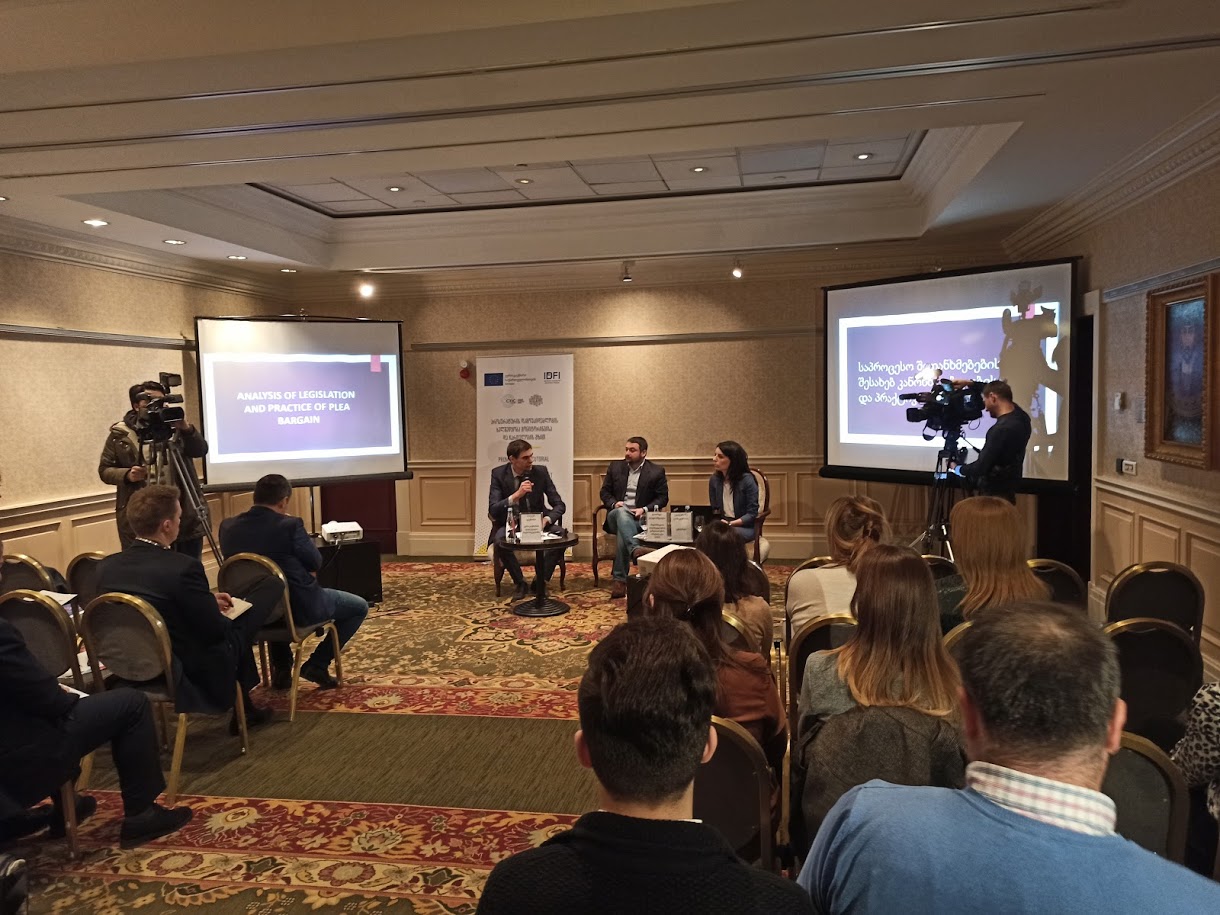


 On December 4, The Institute for Development of Freedom of Information (IDFI) with the support of the European Union (EU) conducted the presentation of the analysis of legislation and practice of plea bargain.
On December 4, The Institute for Development of Freedom of Information (IDFI) with the support of the European Union (EU) conducted the presentation of the analysis of legislation and practice of plea bargain.
Event participants were welcomed by Giorgi KLDIASHVILI – Executive Director of IDFI; and Peter DANIS – Justice Programme Manager from the Delegation of the European Union to Georgia.
"Despite several reforms over the years, the practice of concluding plea bargains in Georgia is still very active and its use is well above the European average. Our research aims to identify gaps and challenges in plea bargaining and identify specific proposals to eliminate them.” – mentioned Giorgi KLDIASHVILI.
“It is important that the necessary legal safeguards are properly adhered to in accordance with the international standards indicated in the research. The recommendations will help the Prosecutor's Office identify problems and resolve them. ” – said Peter DANIS, Justice Programme Manager at the Delegation of the European Union to Georgia.
"Despite the improved practice of application of plea bargain, there is still a need to increase the relevant legal safeguards, which should contribute not only to manual reduction of the number of the plea bargains, but also to prevention of illegal use of plea bargain mechanism, to conclusion of true plea agreements, to ensure fairness and protect the rights of the accused." - Ekaterine TSIMAKURIDZE, Author.
The analysis of legislation and practice of plea bargain revealed the following key findings:
- According to the statistical data published by the Supreme Court of Georgia, the number of cases heard by the first instance courts on plea bargain is considerably high - in 2018, it was 66% of all cases and in the first half of 2019 - 64%.
- According to the report published by the General Prosecutor’s Office of Georgia, imposing fines on plea bargain cases in 2016-2017 is reduced compared to the previous years.
- Analysis of Court decisions show that conditional sentences and fines are mostly used in plea agreement cases, while community service is the most rarely used one.
- Analysis of first instance court decisions show that plea bargains are mostly used in cases of grave crimes (50%).
- Regarding the stages of the trial, plea bargains are most often concluded at the first introductory hearing/proceeding.
The research was conducted in the framework of the project “Promoting Prosecutorial Independence through Monitoring and Engagement (PrIME)”.The project is implemented with the financial support of the European Union.